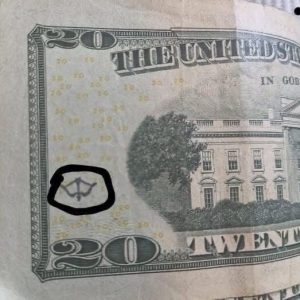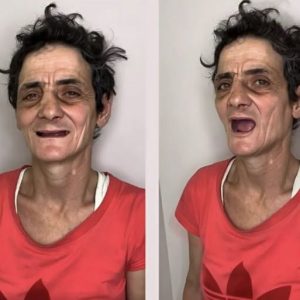Paragraph 1
When my daughter remarried, I assured myself that nothing between us would change, but life has a way of revealing truths we don’t want to see. The first shift came on a Saturday morning when she called and asked if I could babysit “all three kids,” her stepson Jamal, her stepdaughter Ellie, and my biological grandson Mason. My immediate reaction was hesitation, followed by the firm belief that I would always happily watch Mason—but not her stepchildren. When I told her that their biological grandmother could take care of them, her soft but sorrowful response—“You could be one, too, if you wanted”—landed with unexpected weight. I spent hours thinking about that conversation, examining the quiet prejudices I had never acknowledged and the narrow definition of family I had clung to. I adored Mason with all my heart, but the other two children felt like strangers to me, shadows at the edge of a world I believed belonged only to us. When Clara invited me to dinner a week later, I accepted with reluctance but also with a curiosity I didn’t want to admit. What I found was a bustling household where the children interacted as true siblings, not separated by labels, DNA, or history. That night, watching them laugh over spaghetti and seeing their family photos, I realized that they weren’t the ones building a wall—I was.
Paragraph 2
When Clara asked again about babysitting, I said yes without hesitation, sensing that this moment mattered more than I had allowed myself to understand. The Saturday the children came over, the initial quiet was filled with uncertainty; Jamal hovered near the doorway, Ellie clutched a frayed stuffed bunny, and Mason ricocheted between us bursting with excitement. Wanting to make the day warm, I invited them to help me cook. Jamal concentrated carefully on grating cheese, Mason made a spectacular mess stirring the pot, and Ellie watched silently, waiting to learn what kind of adult I would be to her. Slowly, their guard receded. We watched a movie, and when Ellie curled up next to a sleeping Mason, Jamal shrugged and explained gently that she had nightmares and Mason let her hold him. That tiny revelation cracked something open in me—these children loved each other deeply, and I had kept myself at arm’s length for reasons that suddenly felt small. At the end of the day, when Jamal casually said “Bye, Nana Bea,” I didn’t correct him. That small, unthinking moment of acceptance felt like being handed an invisible key to a door I had refused to open. Over the following months, I babysat regularly. They brought me drawings, invited me to their school events, and filled my house with noise and energy. I found myself loving them—not out of duty but because they were easy to love once I allowed myself to truly see them.
Paragraph 3
Our family expanded again when Clara announced she was pregnant. The kids embraced the coming baby with tenderness and excitement: Ellie watched over her like a guard, Jamal hovered nearby pretending not to care, and Mason declared she “smelled like sunshine” the moment she was born. In that warm, chaotic atmosphere, I held the newborn and whispered that she had the best siblings she could ever wish for. Life felt full and complete—until Clara called one day, her voice shaking, to tell me that her husband Darren had died in an accident. The loss hit like a shockwave, shattering the fragile peace and leaving the family reeling. At the funeral, as black clothing blurred into tears and casseroles, I stepped in without thinking. I moved into Clara’s house, helped feed the baby, got the kids ready for school, and sat up with Clara through long nights when grief seemed to hollow her out from the inside. One night, Jamal slipped into my room asking whether they were still a family. I wrapped him in my arms and told him that yes, they were—perhaps even more fiercely now, because love often grows stronger in the spaces grief tries to collapse. As weeks passed, the children slowly recovered pieces of their laughter, and I became part of their routines, homework sessions, and bedtime rituals.
Paragraph 4
The months that followed taught me that healing rarely arrives in grand gestures—it is built instead from ordinary acts repeated with love. I attended school plays, wiped tears after nightmares, and sat through sibling arguments that ended in giggles rather than tears. For the first time in my life, I felt not like a visitor in their home, but like someone whose presence mattered. One afternoon, Ellie approached me holding a drawing: five figures by a house. Clara. The three kids. Baby Ava in a swirl of purple scribbles. And me. Above the picture, written in crooked letters that wavered in places as if drawn with careful concentration, were the words “OUR FAMILY. TOGETHER.” Beneath each figure was a name. Under mine was a single word: “Nana.” Not step-Nana. Not Bea. Just Nana. The simplicity of it struck deeper than any declaration I’d ever heard. I cried—deep, shaking tears that had nothing to do with sadness and everything to do with understanding how much I had been holding back, and how much I had been given without even realizing it.
Paragraph 5
Looking back, I understand now how fiercely I once clung to the belief that only blood determines family. But the children—Jamal with his offbeat humor and anxious bravery, Ellie with her quiet strength and gentle spirit, Mason with his generous, boundless love—showed me that family grows where care is consistent and hearts are open. I became their grandmother not when I agreed to babysit, nor when I attended their events, nor when I held them during grief, but in the countless small moments when they chose me and I chose them. I learned that true family is made not by DNA but by presence, commitment, and showing up when life becomes heavy. These children are mine, and I am theirs—not by birth, not by obligation, but by the love we stitched together through everyday acts of tenderness and belonging. Sometimes, the family you never expected becomes the one you can’t imagine living without. And sometimes, the greatest gift life offers is the reminder that love—not blood—makes a home whole.



